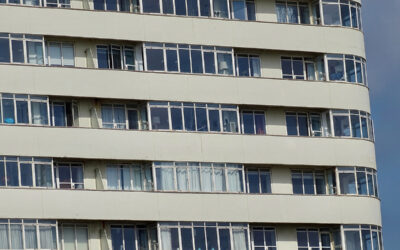Proactive property maintenance programmes are a game-changer for landlords and tenants alike but this area is often plagued by conflict.
From black mould to faulty heating systems, issues can quickly spiral, creating health and safety issues and triggering landlord/tenant disputes.
Few will forget the tragic story of the two-year-old boy who sadly died in his family’s flat. The coroner cited exposure to mould as a cause of death – both heart breaking and preventable.
This winter’s sky-high heating bills have prompted understandable reluctance to open windows but it’s vital to help prevent mould and condensation. Just opening them for 10 minutes on a regular basis, will help to prevent damp and mould. Moving furniture slightly away from the wall also helps air to circulate.
Likewise, household bleach is a cost-effective and readily available solution for mould.
Speaking generally, it goes without saying that lettings agents and landlords should comply with the letter of the law but tenants can also play their part.
Swift reporting is vital – regardless of who’s responsible – particularly if it’s a health and safety concern.
As always, effective two-way communication is key and can prevent potentially nasty accidents, as well as costly bills.
Speed is of the essence, particularly if you’re reporting reactive dangerous faults, such as dangerous wiring or structural issues.
My company uses the repairs and management company, Fixflo, but there are various options available. If in doubt, tenants should contact agents or landlords swiftly and directly.
For clarity, the law sets down specific rules for both private and public sector housing stock and landlords have clear responsibilities.
For a full list of who’s responsible for what, please click on the link below and check out any queries with your lettings agent and/or landlord.
Private renting: Repairs – GOV.UK (www.gov.uk)
This all may sound pretty clear but where does it leave the tenant if landlords drag their feet?
Tenants cannot be forced to carry out repairs that are their landlord’s responsibility. If they fail to respond, then you can contact your local or unitary council and seek the support of the private sector housing team.
However, if you damage somebody else’s property – for example if water leaks through the ceiling – you may be responsible. Check at the outset with your lettings agent and also ensure you have household insurance cover in place, with accidental damage cover.
Finally, what if you’ve taken all reasonable steps but are still concerned that your privately rented home isn’t fit to live in?
Contact your local housing department, regardless of whether your home and request a Housing Health and Safety Rating System (HHSRS) assessment.
And, as always, if you’d like to find out more about any of these issues, please give us a call on 01273 771977 or drop me a line at steve@brightonlettings.co.uk







0 Comments